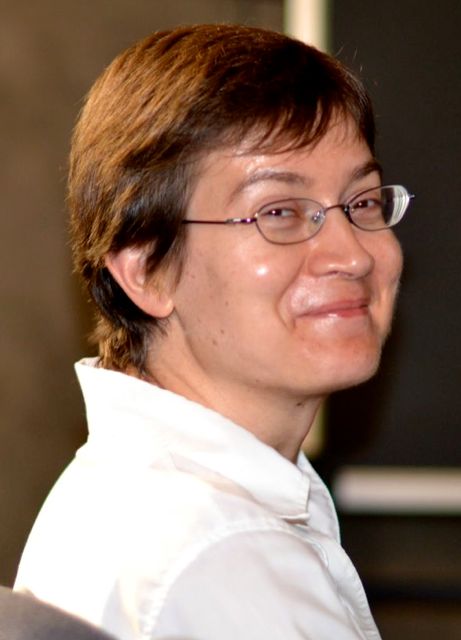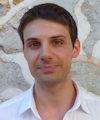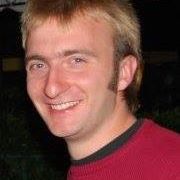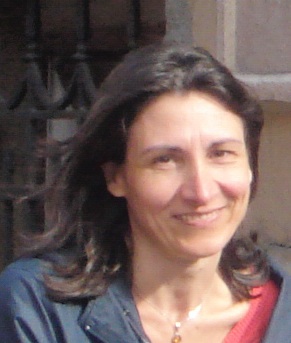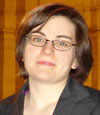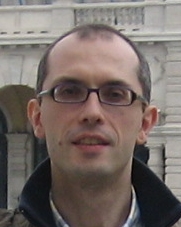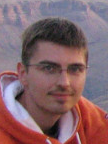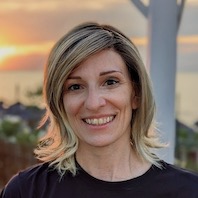Studying at the University of Verona
Here you can find information on the organisational aspects of the Programme, lecture timetables, learning activities and useful contact details for your time at the University, from enrolment to graduation.
Academic calendar
The academic calendar shows the deadlines and scheduled events that are relevant to students, teaching and technical-administrative staff of the University. Public holidays and University closures are also indicated. The academic year normally begins on 1 October each year and ends on 30 September of the following year.
Course calendar
The Academic Calendar sets out the degree programme lecture and exam timetables, as well as the relevant university closure dates..
| Period | From | To |
|---|---|---|
| I semestre | Oct 1, 2019 | Jan 31, 2020 |
| II semestre | Mar 2, 2020 | Jun 12, 2020 |
| Session | From | To |
|---|---|---|
| Sessione invernale d'esame | Feb 3, 2020 | Feb 28, 2020 |
| Sessione estiva d'esame | Jun 15, 2020 | Jul 31, 2020 |
| Sessione autunnale d'esame | Sep 1, 2020 | Sep 30, 2020 |
| Session | From | To |
|---|---|---|
| Sessione Estiva | Jul 15, 2020 | Jul 15, 2020 |
| Sessione Autunnale | Oct 16, 2020 | Oct 16, 2020 |
| Sessione Autunnale Dicembre | Dec 11, 2020 | Dec 11, 2020 |
| Sessione Invernale | Mar 17, 2021 | Mar 17, 2021 |
| Period | From | To |
|---|---|---|
| Festa di Ognissanti | Nov 1, 2019 | Nov 1, 2019 |
| Festa dell'Immacolata | Dec 8, 2019 | Dec 8, 2019 |
| Vacanze di Natale | Dec 23, 2019 | Jan 6, 2020 |
| Vacanze di Pasqua | Apr 10, 2020 | Apr 14, 2020 |
| Festa della Liberazione | Apr 25, 2020 | Apr 25, 2020 |
| Festa del lavoro | May 1, 2020 | May 1, 2020 |
| Festa del Santo Patrono | May 21, 2020 | May 21, 2020 |
| Festa della Repubblica | Jun 2, 2020 | Jun 2, 2020 |
| Vacanze estive | Aug 10, 2020 | Aug 23, 2020 |
Exam calendar
Exam dates and rounds are managed by the relevant Science and Engineering Teaching and Student Services Unit.
To view all the exam sessions available, please use the Exam dashboard on ESSE3.
If you forgot your login details or have problems logging in, please contact the relevant IT HelpDesk, or check the login details recovery web page.
Should you have any doubts or questions, please check the Enrollment FAQs
Academic staff
 mariacaterina.baruffi@univr.it
mariacaterina.baruffi@univr.it
 alberto.benvegnu@univr.it
alberto.benvegnu@univr.it
 maurizio.boscaini@univr.it
maurizio.boscaini@univr.it
 federico.busato@univr.it
federico.busato@univr.it
 enrico.fraccaroli@univr.it
enrico.fraccaroli@univr.it
 claudio.tomazzoli@univr.it
claudio.tomazzoli@univr.it
Ugolini Simone
 simone.ugolini@univr.it
simone.ugolini@univr.it
Study Plan
The Study Plan includes all modules, teaching and learning activities that each student will need to undertake during their time at the University.
Please select your Study Plan based on your enrollment year.
1° Year
| Modules | Credits | TAF | SSD |
|---|
Mathematical analysis 1
Computer Architecture
2° Year activated in the A.Y. 2020/2021
| Modules | Credits | TAF | SSD |
|---|
3° Year activated in the A.Y. 2021/2022
| Modules | Credits | TAF | SSD |
|---|
1 module to be chosen among the following| Modules | Credits | TAF | SSD |
|---|
Mathematical analysis 1
Computer Architecture
| Modules | Credits | TAF | SSD |
|---|
| Modules | Credits | TAF | SSD |
|---|
1 module to be chosen among the followingLegend | Type of training activity (TTA)
TAF (Type of Educational Activity) All courses and activities are classified into different types of educational activities, indicated by a letter.
Mathematical analysis 1 [Matricole pari] (2019/2020)
Teaching code
4S00030
Teacher
Coordinator
Credits
6
Language
Italian
Scientific Disciplinary Sector (SSD)
MAT/05 - MATHEMATICAL ANALYSIS
Period
I semestre dal Oct 1, 2019 al Jan 31, 2020.
Learning outcomes
The course will treat the fundamental concepts of mathematical analysis: the aim is to provide a bet- ter consciousness of the analytic methods in view of applications of analysis. At the end of the course, the students shall prove of being able: to apply mathematical analysis techniques to the solution of problems about functions, derivatives, integrals and series also in different contexts even not strictly mathematical; to apply mathematical analysis techniques to solution of problems; to choose among the various techniques the one better suited to the problem at hand; to describe the solution of a problem employing correct terminology; to widen their knowledge starting from what they learned.
Program
Curves and tangents
Continuity
Limits
Differentiable functions
Study of functions
Integrals
Series
| Author | Title | Publishing house | Year | ISBN | Notes |
|---|---|---|---|---|---|
| Serge Lang | A first course in calculus (Edizione 5) | Springer | 1986 | 0-387-96201-8 |
Examination Methods
The written exam consists in discussing a topic from a theoretical point of view and in solving some exercises on the topics of the course. The complete solution of the exercises leads to a grade not higher than 21/30. Evaluation criteria: • Knowledge and understanding: comprehension of the text of the problems and mastering of the theory behind them. • Applying knowledge and understanding: ability to apply the general techniques to a specific problem • Making judgements: ability to express the learned theoretical concepts in varied situations • Communication skills: language clarity and appropriateness • Learning skills: ability to structure a proof different from those presented during the course
Type D and Type F activities
| years | Modules | TAF | Teacher |
|---|---|---|---|
| 3° | The fashion lab (1 ECTS) | D |
Maria Caterina Baruffi
(Coordinator)
|
| years | Modules | TAF | Teacher |
|---|---|---|---|
| 3° | Control theory | D |
Riccardo Muradore
(Coordinator)
|
| 3° | Biomedical Data and Signal Processing | D |
Silvia Francesca Storti
(Coordinator)
|
| 3° | Python programming language | D |
Maurizio Boscaini
(Coordinator)
|
| years | Modules | TAF | Teacher |
|---|---|---|---|
| 3° | CyberPhysical Laboratory | D |
Andrea Calanca
(Coordinator)
|
| 3° | C++ Programming Language | D |
Federico Busato
(Coordinator)
|
| 3° | LaTeX Language | D |
Enrico Gregorio
(Coordinator)
|
| 3° | Matlab-Simulink programming | D |
Bogdan Mihai Maris
(Coordinator)
|
| years | Modules | TAF | Teacher |
|---|---|---|---|
| 3° | Corso Europrogettazione | D | Not yet assigned |
| 3° | The course provides an introduction to blockchain technology. It focuses on the technology behind Bitcoin, Ethereum, Tendermint and Hotmoka. | D |
Matteo Cristani
|
Career prospects
Module/Programme news
News for students
There you will find information, resources and services useful during your time at the University (Student’s exam record, your study plan on ESSE3, Distance Learning courses, university email account, office forms, administrative procedures, etc.). You can log into MyUnivr with your GIA login details: only in this way will you be able to receive notification of all the notices from your teachers and your secretariat via email and soon also via the Univr app.
Graduation
List of theses and work experience proposals
| theses proposals | Research area |
|---|---|
| Analisi e percezione dei segnali biometrici per l'interazione con robot | AI, Robotics & Automatic Control - AI, Robotics & Automatic Control |
| Integrazione del simulatore del robot Nao con Oculus Rift | AI, Robotics & Automatic Control - AI, Robotics & Automatic Control |
| Domain Adaptation | Computer Science and Informatics: Informatics and information systems, computer science, scientific computing, intelligent systems - Computer graphics, computer vision, multi media, computer games |
| Domain Adaptation | Computer Science and Informatics: Informatics and information systems, computer science, scientific computing, intelligent systems - Machine learning, statistical data processing and applications using signal processing (e.g. speech, image, video) |
| BS or MS theses in automated reasoning | Computing Methodologies - ARTIFICIAL INTELLIGENCE |
| Domain Adaptation | Computing Methodologies - IMAGE PROCESSING AND COMPUTER VISION |
| Domain Adaptation | Computing methodologies - Machine learning |
| Dati geografici | Information Systems - INFORMATION SYSTEMS APPLICATIONS |
| Analisi e percezione dei segnali biometrici per l'interazione con robot | Robotics - Robotics |
| Integrazione del simulatore del robot Nao con Oculus Rift | Robotics - Robotics |
| BS or MS theses in automated reasoning | Theory of computation - Logic |
| BS or MS theses in automated reasoning | Theory of computation - Semantics and reasoning |
| Proposte di tesi/collaborazione/stage in Intelligenza Artificiale Applicata | Various topics |
| Proposte di Tesi/Stage/Progetto nell'ambito dell'analisi dei dati | Various topics |
Attendance
As stated in the Teaching Regulations for the A.Y. 2022/2023, attendance at the course of study is not mandatory.

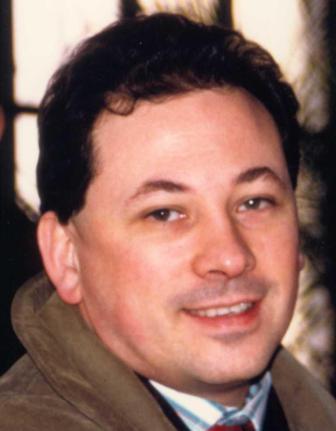
 +39 045 802 7980
+39 045 802 7980

